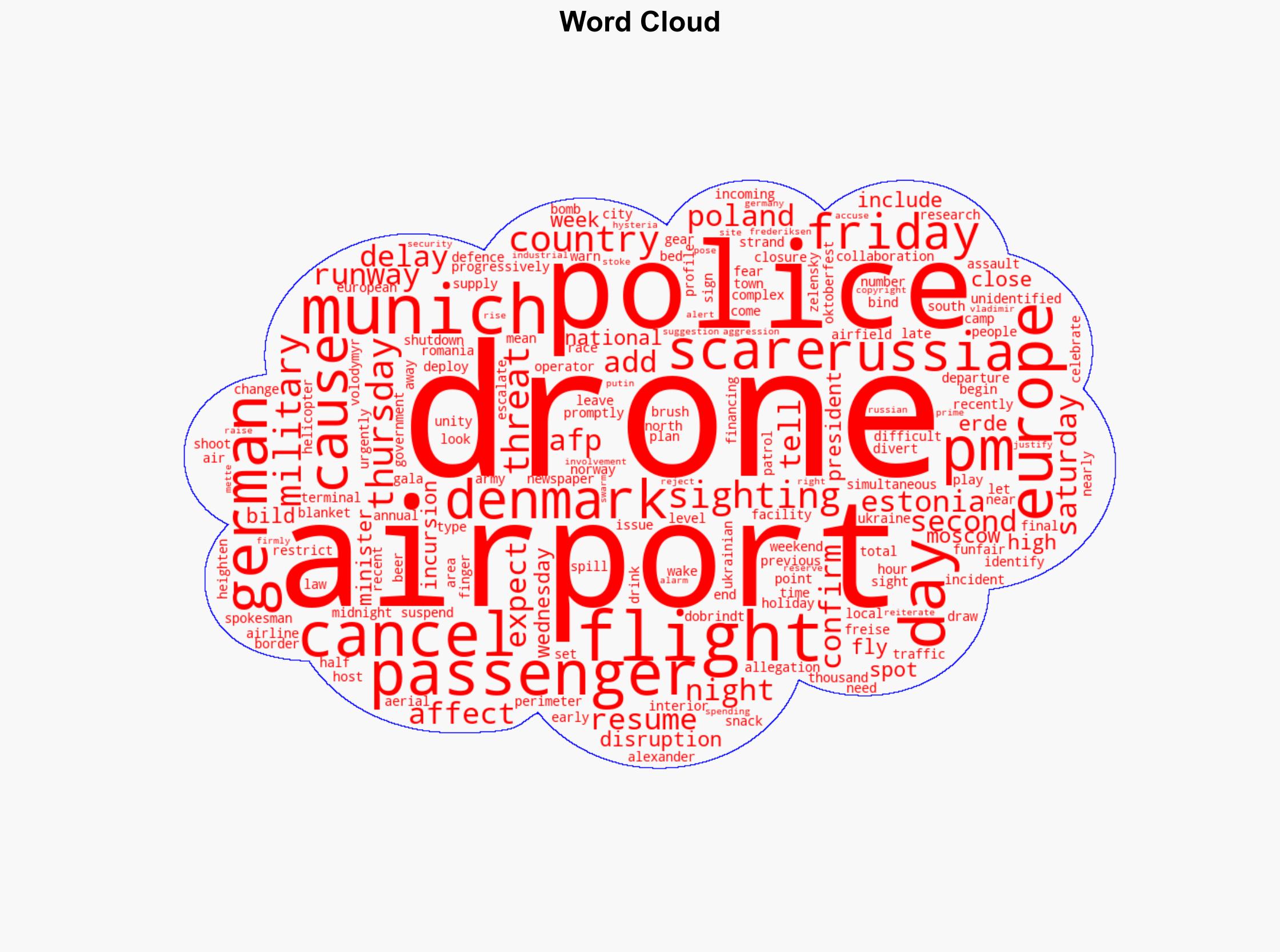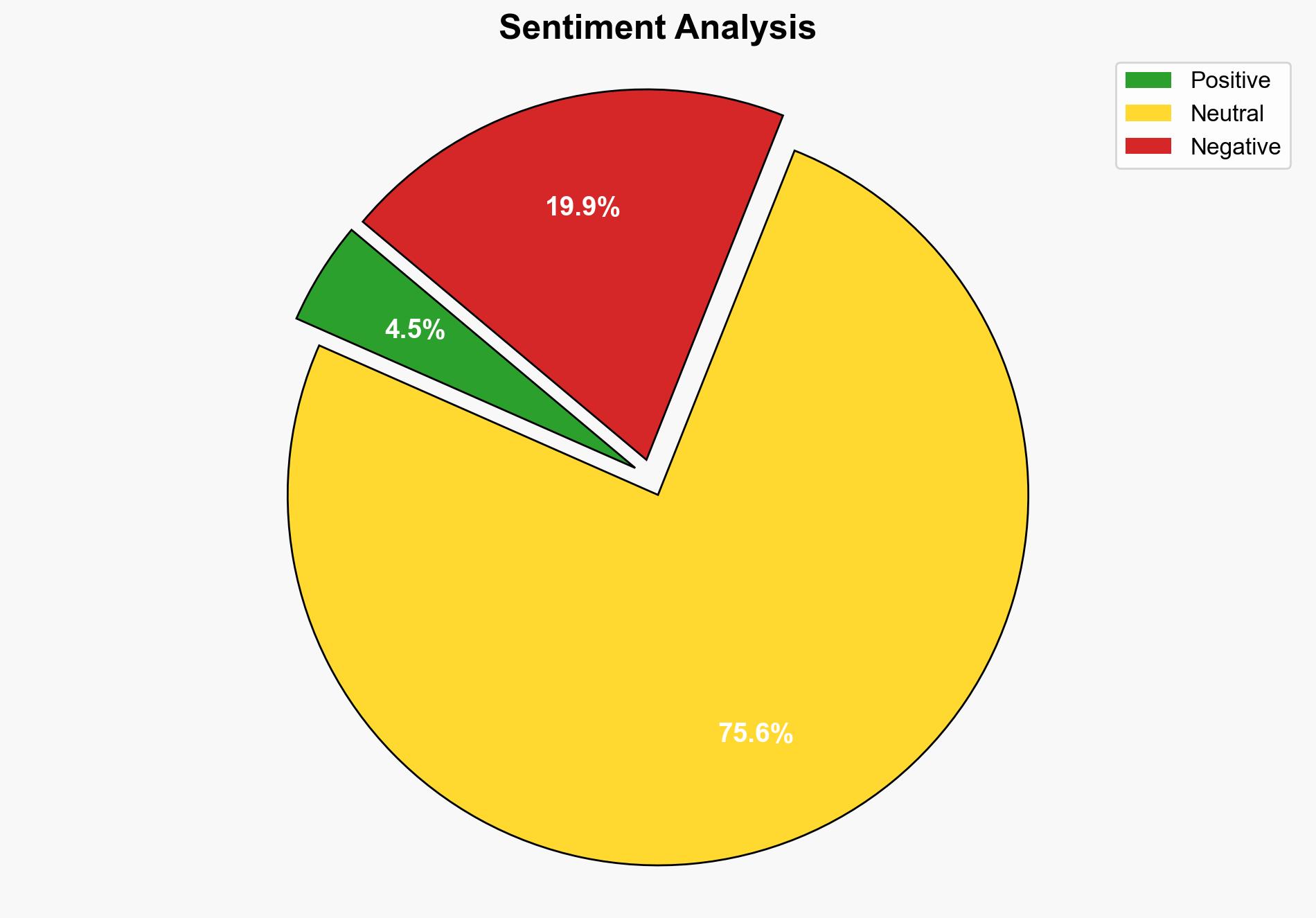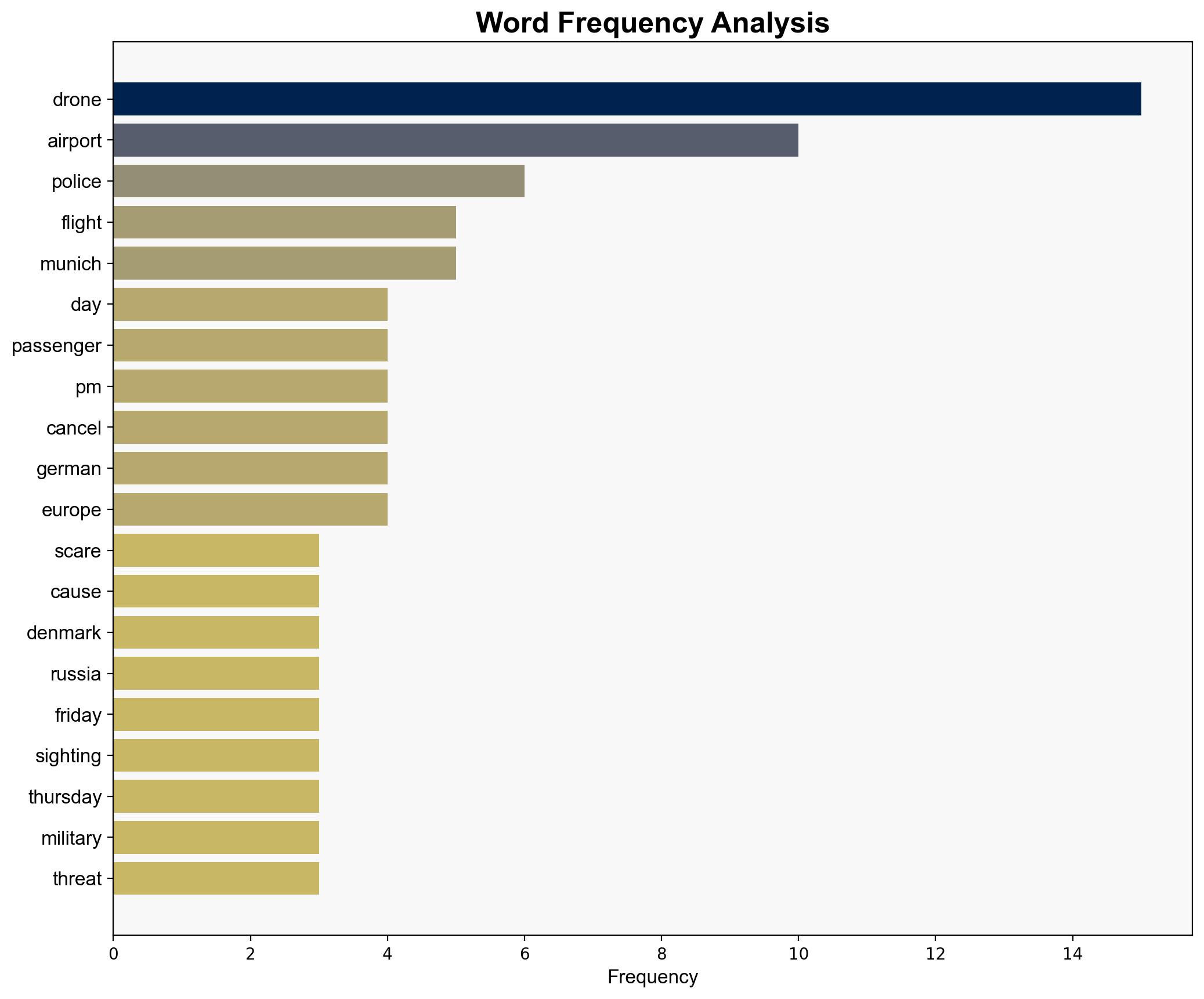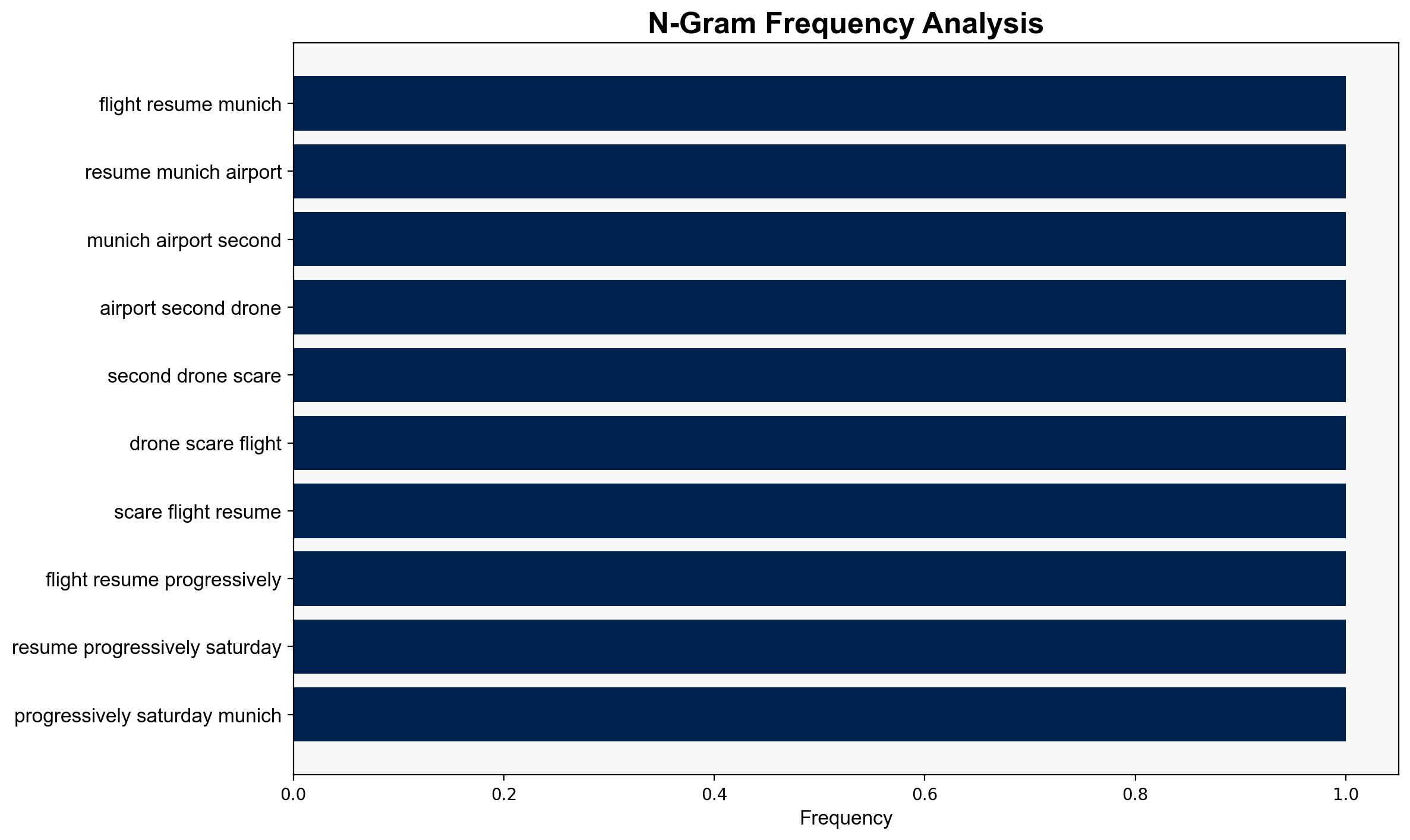Flights Resume At Munich Airport After Second Drone Scare – International Business Times
Published on: 2025-10-04
Intelligence Report: Flights Resume At Munich Airport After Second Drone Scare – International Business Times
1. BLUF (Bottom Line Up Front)
The most supported hypothesis is that the drone incursions are part of a coordinated effort to test and exploit vulnerabilities in European airspace, potentially linked to geopolitical tensions involving Russia. Confidence level: Moderate. Recommended action: Enhance regional airspace monitoring and defense capabilities, and strengthen international cooperation on drone threat intelligence.
2. Competing Hypotheses
1. **Hypothesis A**: The drone sightings are isolated incidents caused by hobbyists or local actors with no direct geopolitical agenda. This hypothesis suggests that the incidents are coincidental and not part of a larger coordinated effort.
2. **Hypothesis B**: The drone sightings are part of a deliberate strategy by a state actor, likely Russia, to probe and destabilize European airspace as part of broader geopolitical maneuvers. This aligns with recent tensions and drone incursions in other European countries.
3. Key Assumptions and Red Flags
– **Assumptions for Hypothesis A**: Assumes no coordination between incidents and underestimates the potential for state-sponsored activities disguised as civilian actions.
– **Assumptions for Hypothesis B**: Assumes a high level of coordination and intent by a state actor, potentially overestimating the capability or intent of such actors.
– **Red Flags**: Lack of concrete evidence linking drones to any specific actor; potential bias towards attributing actions to Russia due to current geopolitical climate.
4. Implications and Strategic Risks
– **Economic Impact**: Repeated airspace disruptions could lead to significant economic losses for airlines and airports.
– **Geopolitical Tensions**: If linked to state actors, these incidents could escalate tensions between European nations and Russia.
– **Psychological Impact**: Continued drone incursions may lead to public fear and decreased confidence in air travel security.
– **Cybersecurity Risks**: Potential for drones to be used in cyber-espionage or cyber-attacks on critical infrastructure.
5. Recommendations and Outlook
- Enhance surveillance and detection systems at airports to quickly identify and neutralize drone threats.
- Foster international collaboration for intelligence sharing on drone activities and potential state actor involvement.
- Scenario Projections:
- Best Case: Incidents are isolated, leading to improved security measures without further geopolitical escalation.
- Worst Case: Continued drone incursions lead to significant disruptions and heightened tensions with Russia.
- Most Likely: Increased security measures and international cooperation mitigate immediate threats, but underlying tensions persist.
6. Key Individuals and Entities
– Alexander Dobrindt: Mentioned in context of German government response.
– Volodymyr Zelensky: Ukrainian President, referenced regarding geopolitical tensions.
– Vladimir Putin: Russian President, mentioned in relation to accusations of Russian involvement.
7. Thematic Tags
national security threats, cybersecurity, counter-terrorism, regional focus





